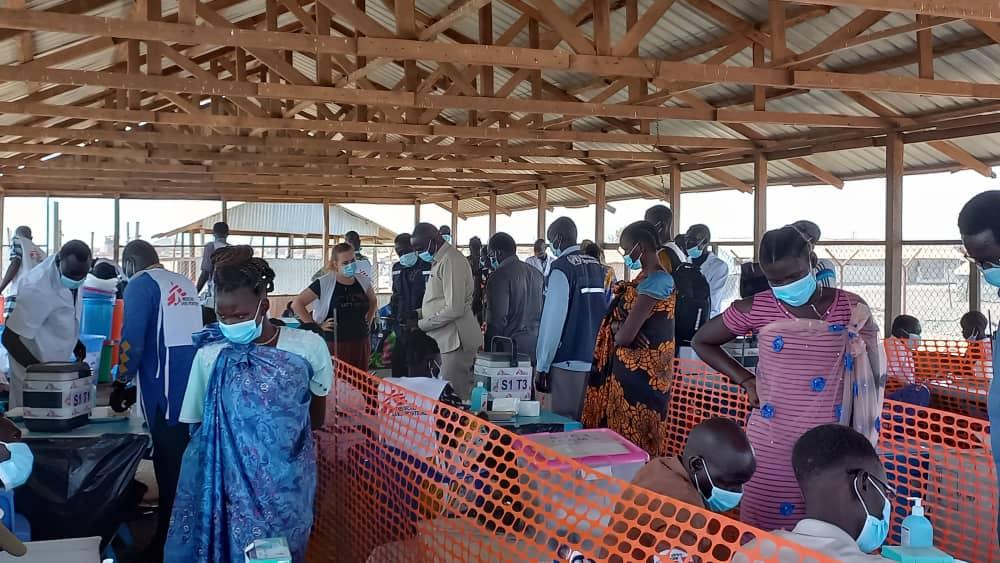In response to the current hepatitis E outbreak in Bentiu, international medical humanitarian organisation Médecins Sans Frontières (MSF) is supporting the South Sudan Ministry of Health (MoH) to implement a ground-breaking hepatitis E vaccination campaign, vaccinating approximately 24,500 people.
People in Bentiu internally displaced persons (IDP) camp – the former Protection of Civilians site – are facing outbreaks of infectious and waterborne diseases due to poor water and sanitation conditions in the camp. MSF have witnessed a concerning increase in hepatitis E as a result of inadequate and insufficient sanitation services, and have been raising the alarm that more needs to be done to respond to this outbreak and prevent further increases in the number of hepatitis E cases.
Hepatitis E is an acute liver infection that is usually transmitted by drinking water contaminated by faeces from an infected person. Hepatitis E cases have been reported in Bentiu since 2014, however, the current surge in cases began in July 2021. Since then, 667 patients have been confirmed to have contracted hepatitis E, of whom 13 have tragically died. Worryingly, the outbreak is continuing to escalate in terms of transmission and severity. Since 2022, MSF has witnessed on average one person with hepatitis E dying per week, indicating a concerningly high mortality rate.
The hepatitis E outbreak constitutes a substantial public health threat to the community, who are already vulnerable to a multitude of infectious diseases, acute conditions and multiple shocks. There is no specific treatment for acute hepatitis E, and pregnant women are particularly at-risk, with mortality rates among this group between 10 to 25 per cent. Moreover, hepatitis E is also associated with adverse foetal outcomes, including miscarriage, stillbirths, preterm delivery, increased risk of neonatal complications, and mother to infant transmission.
On Tuesday 22 March 2022, the MoH and MSF started the first round of the hepatitis E vaccinations, which concluded on the 30 March. Second and third doses will be rolled out over the coming months. This is the first time this vaccine is being used in a mass vaccination campaign and during an active outbreak of hepatitis E. It is hoped that it will help to reduce morbidity and mortality of people living in the camp, and serve as an example for other governments dealing with outbreaks of hepatitis E in their own contexts.
“The bulky packaging and cold chain requirements made this campaign challenging, but is possible, and this vaccination could be game-changing in hepatitis E outbreak response,” said Jetske Duncker, Deputy Medical Coordinator for MSF. “However, more still needs to be done to mitigate this outbreak, including proper treatment and sufficient quantity of drinking water within the camp as well as availability of functional latrines.”
Water and sanitation have been substandard for as long as the camp has existed but have drastically deteriorated over time, especially in the last two years when severe flooding in Unity State has exacerbated the situation. Flooding is predicted to be even worse this coming rainy season, as water levels have barely receded and floodwater is still sitting at an alarmingly high rate; raising concerns about further deterioration of the already dire water and sanitation conditions in the camp.
“The vaccination alone is not enough to address the health crisis that we are witnessing in Bentiu IDP camp,” said Dr. John Rumunu, Director General for Preventive Health Services, MoH. “Other prevention measures – such as improved water and sanitation services and health promotion – also need to be prioritized by humanitarian organizations.”
